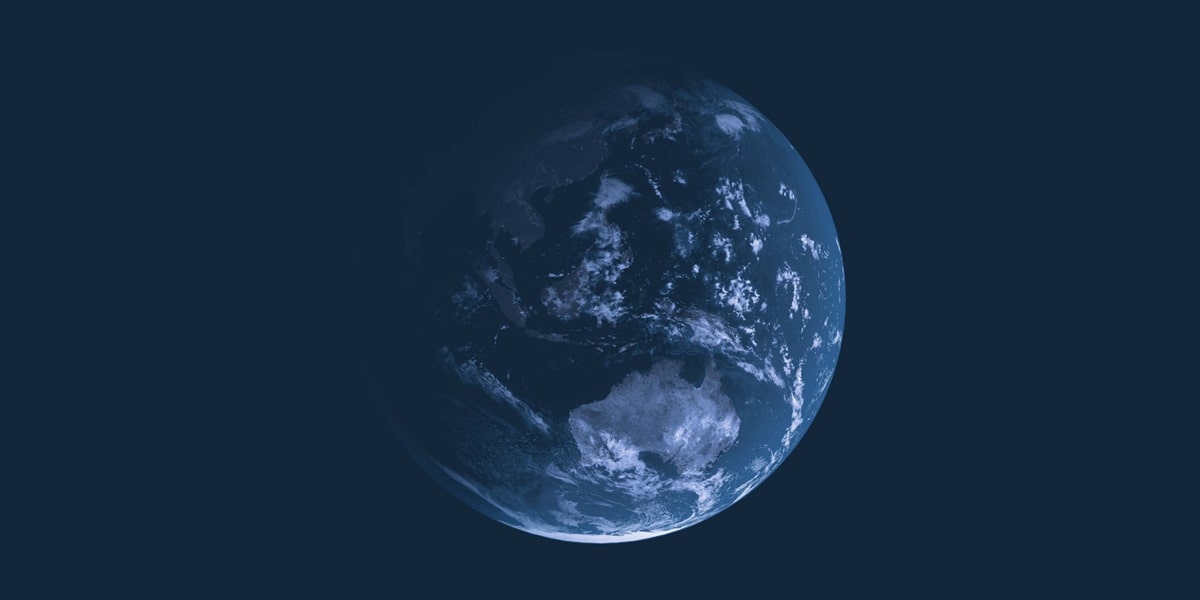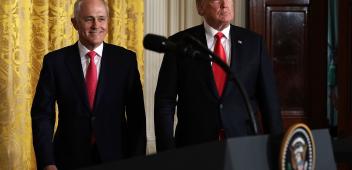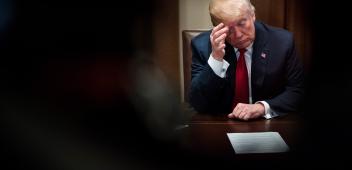West must inflict a hammer blow to Russia’s economy
Originally published in The Australian.

Russia’s invasion of Ukraine has shattered three stultifying illusions and delivered a rude wake-up call to a complacent and self-obsessed West. Vladimir Putin’s game-changing aggression will lead to a hardening of the systemic divide between democracies and autocracies; increased geopolitical risk; higher defence spending; less globalisation; greater financial market volatility; rising inflation driven by surging energy and commodity prices; and a significant push by Europe to diversify its energy supplies away from Russia.
The West must be prepared to back harsher sanctions with military action by turning Ukraine into a “porcupine” of resistance. If Europe and the US won’t commit troops to defend Ukraine, then they should help Ukrainians fight for their country by supporting an insurgency against occupying Russian forces. Putin must be made to bleed militarily as well as economically. But Australians should resist the understandable urge to fight alongside Ukrainians as mercenaries. Although it is not illegal to work for the legitimate military of a recognised government, what the Ukrainian armed forces need most are antitank and air defence weapons.
The first shattered illusion was that major war in Europe was unthinkable. Almost without exception, European leaders and diplomats had come to believe democracy was so entrenched in a continent committed to peaceful conflict resolution that war had been consigned to the dustbin of history. How wrong they were.
If things go badly in Ukraine, this error of judgment could rank with Neville Chamberlain’s and Joseph Stalin’s equally profound misjudgments of Adolf Hitler’s persona and ambitions. One led to a devastating world war and the other to Hitler’s invasion of Russia.
The prospect of a third world war triggered by a European conflict no longer can be ruled out. And it easily could go nuclear given Putin’s reckless decision to put his country’s nuclear weapons on high alert.
If Ukraine falls, who will be next? Despots are not known for restraint. Belarus is effectively a Russian satellite state, so Putin is well on the way to successfully reclaiming almost half the territory lost since the fall and fragmentation of the Soviet Union. With the subjugation of Ukraine, independent Poland, Romania, Slovakia, Hungary, Lithuania and non-NATO Moldova would lose their buffer and share a common border with an enlarged and expansionist Russia – not a prospect that fills them with joy.
If they don’t want to suffer Ukraine’s fate, Europeans need to take their defence obligations seriously and stop outsourcing it to an increasingly stretched and war-weary US. Fortunately, the US is still prepared to lead. And non-European democracies such as Australia will be supportive. But Europe must assume primary responsibility for its own defence.
The US needs to keep its powder dry for another expansionist power with territorial ambitions and the military power to take what it wants by force of arms.
A second illusion was that Putin would never dare to invade Ukraine for fear of the consequences. All he wanted, armchair strategists said, was to pressure Ukraine into compliance, consolidate his control over the pro-Russian Donbas region of eastern Ukraine and extract Western security concessions that would reinforce his strongman credentials at home and abroad.
But as we now know, Putin’s ambitions are far greater. He wants to re-establish the Soviet empire, make Russia great again and establish a new international order run by Russia and China that places dictators at the apex of a ruling class of great powers.
The failure to understand Putin and his strategic objectives is one of the great misappreciations of the past century. Should Putin’s new world order be cemented, international law would be replaced by the law of the jungle, where might is right and human rights, national sovereignty and the lives of ordinary citizens are subordinated to the whims and prejudices of despots.
A third illusion is that the sanctions applied so far will be sufficient to stop Putin. They may well be the toughest sanctions ever imposed on a country. But many are a slow bleed and Putin has spent years preparing for them. Strengthened economic ties with China have helped. Two-way trade increased 30 per cent last year to $US115bn ($160bn). Xi Jinping has been happy to buy more Russian oil and gas in his quest to reduce reliance on seaborne energy that could be disrupted by unfriendly states.
Putin’s trump card is that his country is an energy superpower, the world’s second largest gas producer and third largest oil producer. Russia produces 17 per cent of natural gas, 12 per cent of oil and 10 to 15 per cent of global thermal and metallurgical coal.
The problem for Europe is that any attempt to impose sanctions on Russian energy could cost energy-deficient members dearly. Putin could reciprocate by weaponising his energy power. The easiest way to do this would be to turn off the oil and gas spigots. This would exacerbate existing shortages and turbocharge price rises.
There also would be global repercussions. A Russian energy embargo would fuel inflation, pushing up oil prices to levels unseen since they quadrupled during the oil crisis of 1972-73. Even without an embargo, some experts say in a drawn-out crisis oil could reach $US140 a barrel, feeding inflation and driving up transport costs.
But if the West is serious about defending the liberal democratic order that Putin is gleefully trashing in Ukraine it must be prepared to accept significant economic pain. Severing Russia from the SWIFT international payments system is a good start. It should be followed by an embargo on Russian oil and gas. These two actions would be a hammer blow to the fragile Russian economy – Putin’s achilles heel.
They would be even more effective if underpinned by immediate injections of lethal military aid that can help the Ukrainian armed forces degrade and destroy Putin’s war machine.



